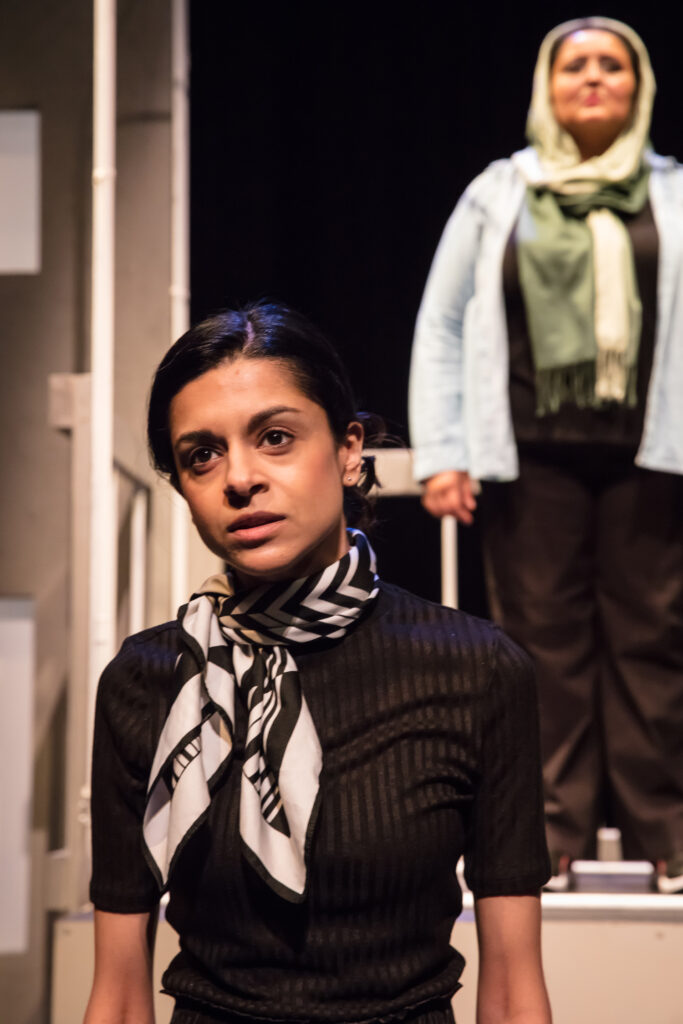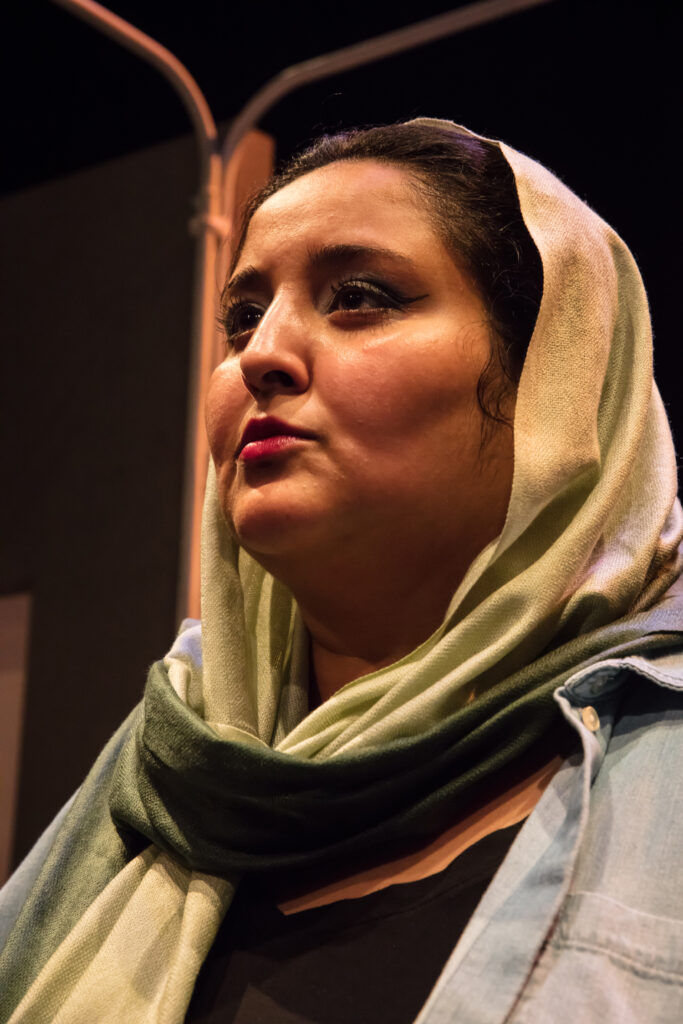Review: Rabiah Hussain’s Debut SPUN
Written by Shazma Abdulla
“Aisha: What do you see when you look at me?
Safa: Everything I don’t want to be.
Safa: What do you see when you look at me?
Aisha: Everything I shouldn’t have to be.”
The powerful prologue of SPUN, Rabiah Hussain’s debut play, sets us up for the main narrative tension. SPUN is a coming-of-age story, essentially, about diaspora identity and belonging in the West. Under Mercedeh Baroque’s direction, actors Amena Ahmad and Sundance Nagrial deliver stunning and compelling performances as Safa and Aisha, two best friends from British-Pakistani families living in Newham, London. The narrative and its two main characters are deep, complex, rich.

Safa and Aisha are just finishing university and embarking on their adult lives ahead. Safa goes on to become a marketing associate at a big London firm while Aisha stays local, choosing to be a teacher’s aide in her old school. As if it isn’t enough of a challenge for two East London Muslim women to integrate into modern British society, the events of the narrative take place in the midst of the 7/7 Bombings in London. Safa responds by eschewing aspects of her culture, feeling a misplaced guilt and anger on behalf of and against her community. Never fully feeling like she belongs in either world, she (somewhat naively) distances herself from Aisha and tries to assimilate more into British culture. On the other hand, Aisha moves closer to her faith and her community, directing her anger towards the dominant society that demonizes all British Muslims.
While the focus of the narrative is on two young British-Pakistani women, their struggles with belonging, identity, integration/assimilation, and the social pressures of straddling two worlds speaks to all of us with hyphenated identities. Safa and Aisha struggle with the questions we all struggle with: Why do we/don’t we stay in our communities? Why do we/don’t we integrate? What does integration even mean today, particularly when your climate is hostile and expects you to shed your identity entirely?

Hussain has written a deeply compelling narrative in this regard. Rarely do we see young Muslim women represented in this way in cultural production. We’re usually victimized, demonized, or simply there to fill diversity quotas. SPUN speaks to those of us who are consistently denied the opportunity or agency to speak for ourselves, particularly in the context of Quebec where secularism and (benevolent, white, paternalistic) feminism is used to further oppress, deny, and marginalize, all in the guise of saving and protecting Muslim women from barbaric religious practices. SPUN is our story, told by us.
SPUN is at the Centaur Theatre through to September 28, 2019. For tickets and information, click HERE.






